
How To Kill Weeds: 20 Effective Ways For Weed Control
Published: 19/12/2022 | Updated: 04/05/2023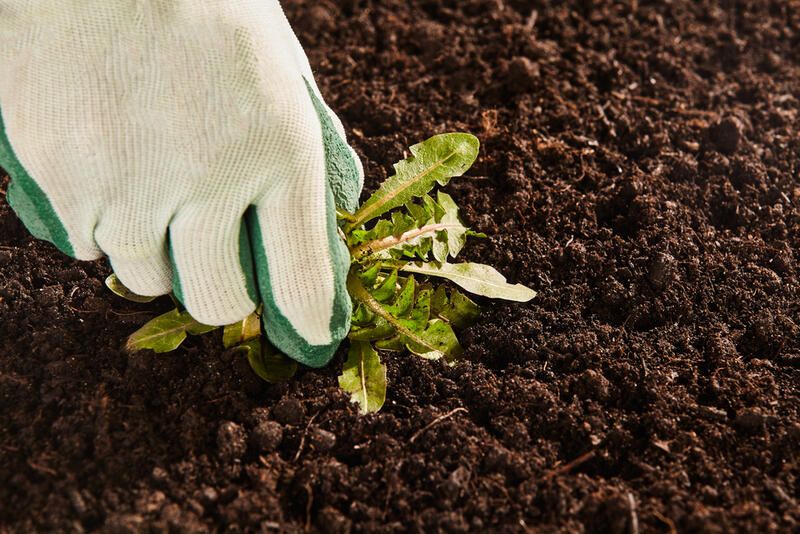
Weeds are an uninvited guest in any garden. Even though they might help you attract wildlife and create biodiversity, they steal nutrition from your other plants and unintentionally kill them.


And the worst part is that they can grow anywhere and they seem to pop up overnight.
If you’re tired of spending hours pulling or spraying weeds, here are 20 effective ways for weed control:
1. Hand-Pull Weeds
Weeds can be one of the most annoying things to deal with in your garden, but there are some ways to control them.
One way is by hand weeding them out by hand when they are young and easy to get rid of, and when they're actively growing—not when they're dormant.
This way you'll also remove the weed roots so it prevents regrowth, which will help prevent future growth of weeds in that spot as well!
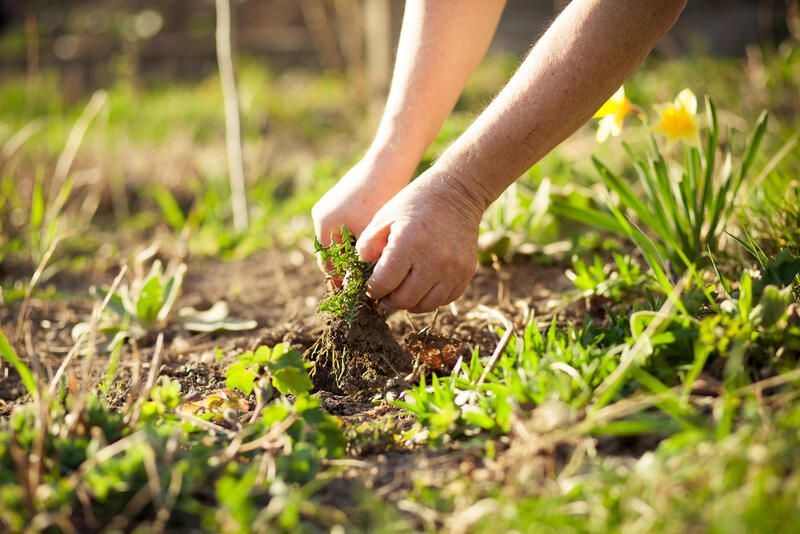
2. Solarize Garden Soil With Black Plastic
Solarization uses black plastic to heat the soil and kill weeds, pests, and diseases. It's a great way to take care of garden problems in the spring or fall when the ground is still warm enough for solarization (and you get it done before winter sets in).
The process involves laying down a thick layer of black plastic over your entire garden plot, including pathways and any other areas that are not being planted this year.
Leave this on for several weeks—the longer you leave it there, the more effective it will be.
If you want to use solarization for an entire season, leave two layers of plastic down at once: one layer laid horizontally along with other rows and paths; another laid vertically.
You can also leave holes open where plants are placed so there is good air circulation around them during summer months; just make sure these spaces don't get covered by snowfall later on!
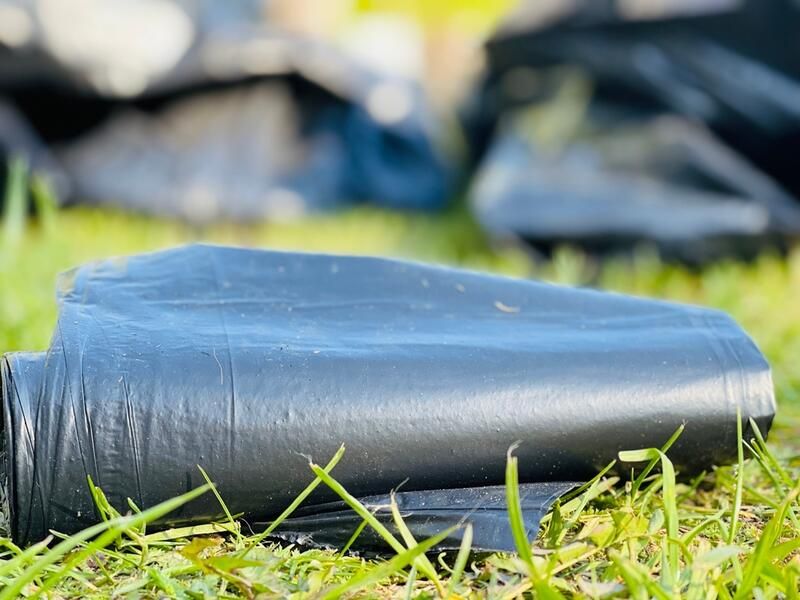
3. Use Boiling Water
Boiling water is one of the oldest ways to kill weeds, and it can be effective when used properly.
Boiling water needs to be poured directly onto the plants you want to kill, but it’s important not to let the boiling water touch nearby plants or surfaces that you don’t want to be damaged by heat (like your deck).
The boiling water will do its job quickly if left on top of the weeds for long enough—generally, around 10 minutes or so depending on how much weed growth there is and how long they need time to soak.
If the weeds aren't growing in grassy areas, leaving them like this should usually take care of things without damaging any surrounding plants or lawns.
4. Vinegar Works Too!
Vinegar can also be used as a weed killer. Vinegar is not very toxic, but can still be harmful if it gets on your skin or in your eyes.
Vinegar is safe to use around children and pets, but shouldn't be sprayed directly onto their bodies.
If you plan to use vinegar as a weed killer, make sure the weeds are not yet growing so that they'll be less likely to burn from the acidity of the vinegar.
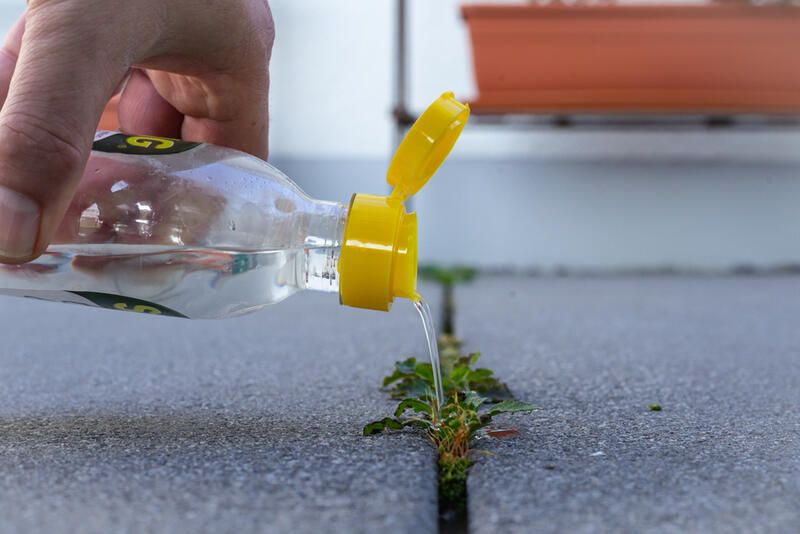
5. Try Epsom Salt
Epsom salt is a natural way to kill weeds. It's cheap and easy to use, and it's safe for the environment. It works on most weeds, though you'll need to reapply once or twice a year as long as your weed has active roots.
-
Mix Epsom salt with water in a spray bottle until it forms a thick paste (you can also mix it into the soil with your hands).
-
Spray or spread the mixture over any weeds you want to kill so that they're covered completely with Epsom salt—the thicker the paste, the better!
-
Don't worry if some of your grass gets coated too; it won't hurt them at all!
6. Try Cornmeal Gluten
Cornmeal gluten is a natural pre-emergent herbicide and can be used to prevent weeds from growing. It works by preventing seeds from germinating, which means it only prevents them from growing once they’ve already been planted.
This is great if you have some stubborn weeds that seem to want to grow no matter what you do, but not so much if you’re trying to keep an entire garden weed-free.
Corn gluten meal is also a fertilizer—and if the soil around your vegetable patch or flowerbeds is lacking in nutrients, then feeding it this stuff will help keep those plants healthy and strong.
7. Use Table Salt
Table salt is a good weed killer for lawns. It kills weeds by dehydrating them and not damaging the grass or the soil.
However, it should not be used on edible plants as it can kill them as well.
The best time for applying salt to kill weeds is in spring or fall when temperatures are cool because hot weather will cause the salt to evaporate before it has a chance to do its job properly.
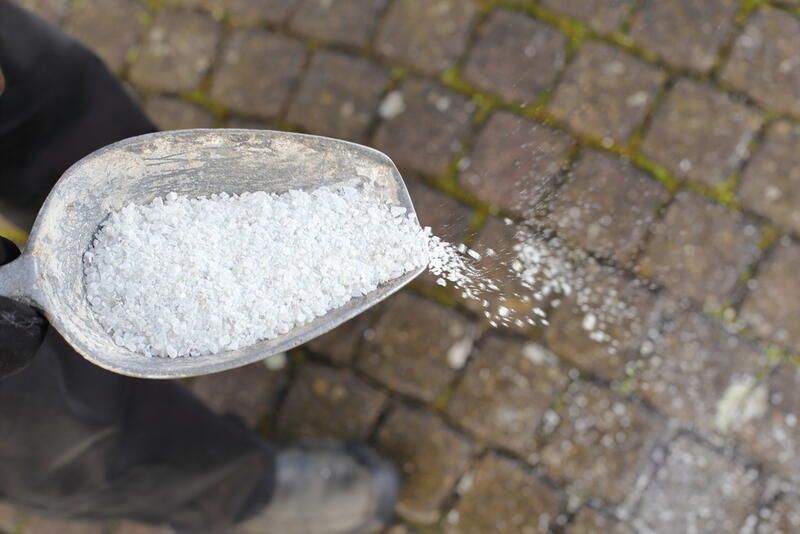
8. Try Household Vinegar, Dish Soap, and Water
The vinegar, dish soap, and water mix is a great weed killers that you can make yourself. You will need:
-
1 tbsp of dishwashing liquid or vinegar per 1L of water.
-
A spray bottle.
To apply the solution:
-
Spray all over the weed until it is wet to the roots.
-
Spray both sides of leaves if they are present but be careful not to damage non-weeds surrounding your target weed otherwise you may spread weeds into new plants!
-
Wait 30 minutes for it to dry before removing plants from the ground (if not using an herbicide).
-
Now that your weeds are dead, clean up any spills with soapy water then spray down the area again just in case there was some residue left behind!
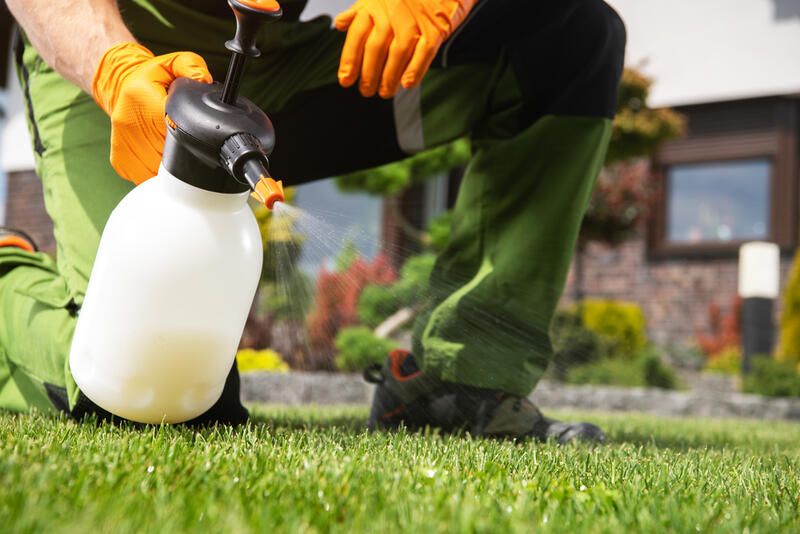
9. Use Caustic Soda Solution (sodium hydroxide)
You can use a caustic soda solution (sodium hydroxide) to kill weeds. It is a strong base and is also known as lye.
It is used in drain cleaners and for making biodiesel, but it can also be used to kill weeds.
This can be an effective method by denaturing the proteins present in the leaves of the plants, which will eventually cause them to die.
To apply this method:
-
Mix 1 part sodium hydroxide with 9 parts water in a bucket or large container with a lid on it.
-
Wear rubber gloves when handling chemicals like sodium hydroxide.
-
Make sure that there are no pets or children around while you are working.
-
Pour some diluted sodium hydroxide onto each plant that needs attention—don't pour it over other plants!
-
You don't have to cover every inch—just enough so that all sides become wet when you're finished.
-
Cover up any containers placed around plants so animals cannot drink any leftover chemicals.
-
Check the weed after about 24 hours, then remove the dead weeds with clippers or other tools before they decompose.
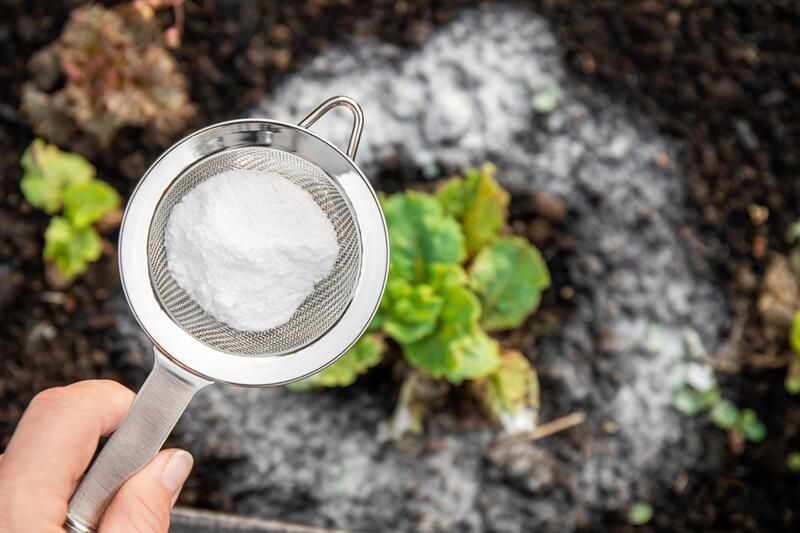
10. Create a Bleach and Salt Solution
A bleach and salt solution is a very effective way to kill weeds. This method is good for killing weeds, but will not work if they've already matured.
This homemade weed killer should include one part bleach and two parts salt. Mix the ingredients in a bucket and pour them into a spray bottle when ready to use.
Spray directly onto the weed, making sure to cover it completely with the solution (wear gloves, eye protection, and old clothes).
Let sit for 48 hours before rinsing off by spraying water over the area where you applied the mixture.
11. Create a Baking Soda Spray
This is another great homemade weed killer. Mix one tablespoon of baking soda with one gallon of water and spray it on the weeds.
This will kill them within a few hours, but you can also let them sit overnight if needed. The next day, rinse off the mixture with water and repeat this process every two weeks until the weeds have died out completely.
12. Try The White Vinegar, Rubbing Alcohol, and Liquid Dish Soap Mixture
Vinegar is one of the most popular weed killers available. It works by burning through a plant's outer defenses and killing it from the inside out.
It also has antifungal properties that can help prevent mold growth on dead plant matter left behind after spraying.
To make this homemade weed killer recipe, combine 2 parts white vinegar with 1 part rubbing alcohol and 1 part liquid dish soap in a spray bottle.
Spray on weeds in the morning or evening when temperatures are cooler for better results!
13. Use a Dedicated Mulching Mower
A mulching lawn mower is much better for the environment than bagging clippings and letting them decompose on top of the soil.
The grass clippings provide nutrients to your lawn, which reduces the need for fertilizer. Plus, you're not wasting paper or plastic bags!
The downside: A mulching mower does not produce a nice-looking edge along sidewalks and driveways as you would with a non-mulching model.
So if looks are important to you, another option would be to use a dedicated edger instead of relying on your mower's blade—and save yourself some time!
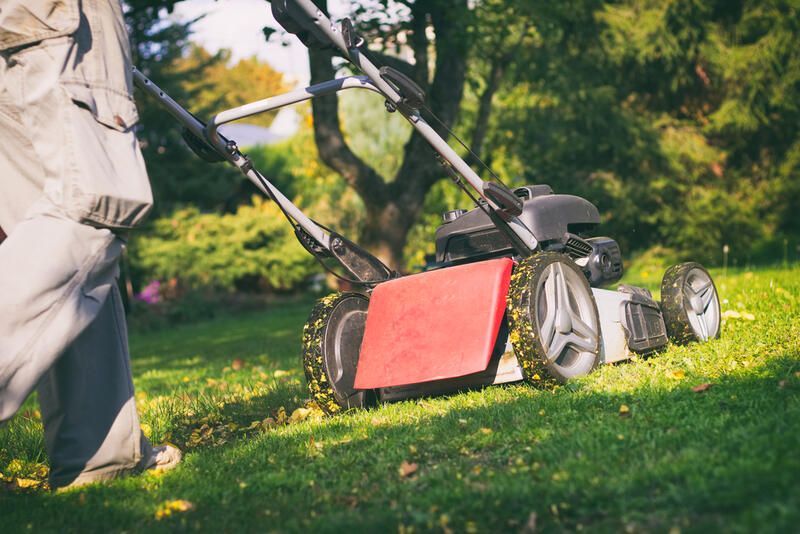
14. Mow High and Leave Grass Clippings on The Lawn
Mow your lawn at 3.5 inches or higher, and leave the grass clippings on the grass. This will help kill weeds by:
-
Fertilizing your lawn, which is good for a young and healthy lawn.
-
Natural weed killer as it will effectively smother them out of existence under the blades of grass, so they can’t grow there anymore.
15. Water Deeply and Infrequently
The idea behind watering deeply is to encourage deep roots in your grass. This will help prevent weeds from growing and keep the soil moist longer, which will lead to stronger grass growth.
If you have time for only one thing on this list, make it this one!
You may have heard that too much water can cause disease and kill your lawn, but at least when it comes to watering frequently or infrequently, there’s no such thing as ‘too much’ or ‘too little’ when it comes to keeping your lawn healthy.
While frequent watering does seem like a good idea because it keeps the grass hydrated, it encourages shallow roots that are more susceptible to diseases like fungus gnats (which feed on fungus) and root rot (which causes brown patches).
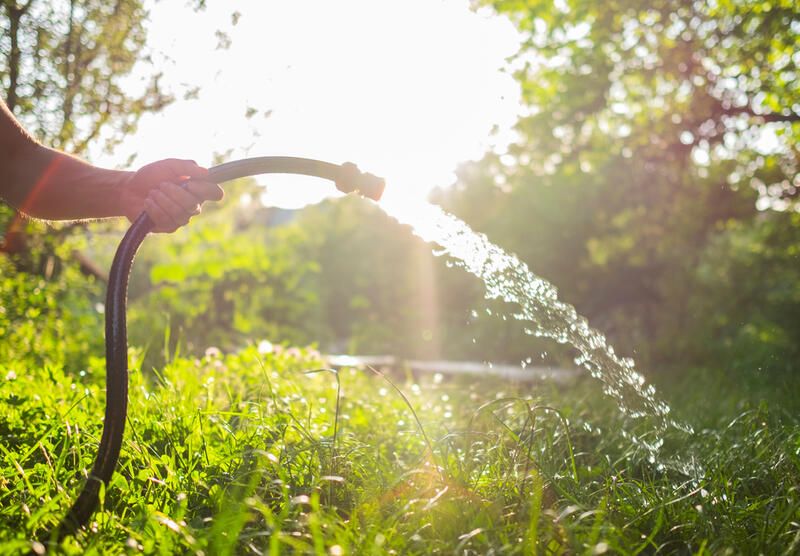
16. Cut Down on Nitrogen Fertilizer Applications
You can also help your grass out by not over-fertilizing. When you apply too much nitrogen fertilizer to your lawn, it can burn the roots of the grass and cause them to turn yellow.
If you're applying fertilizer, always read the instructions on the bag and never exceed what they recommend.
Try to steer clear of synthetic fertilizers as they tend to kill weeds faster than organic ones do
17. Use Herbicides Selectively and Carefully
The use of selective herbicides is often the most effective way to control weeds. However, it's important to remember that not all weeds will be killed by these chemicals and some may require repeated applications.
If you're using a selective herbicide on your lawn or around other plants, be sure to follow the safety precautions listed on its label.
Always wear protective clothing and keep children and pets away from treated areas as well as any spilled liquids!
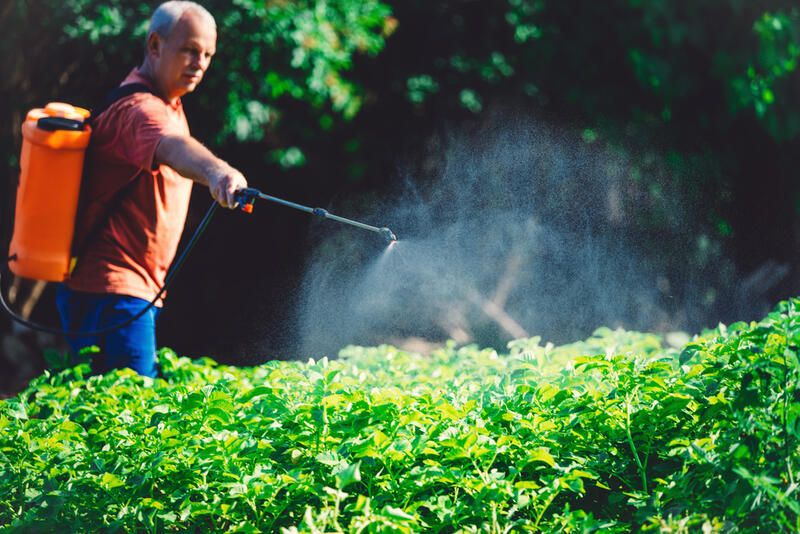
18. Buy and Plant Seeds That Have Been Coated With Pre-emergent Herbicides
If you're planting flowers or vegetables, your seed packet may come with a little packet of something called "weed and feed" fertilizer, which contains both fertilizer and an herbicide that prevents seeds from germinating.
This is an easy way to prevent more weeds from growing in your garden, but it's only effective if used carefully!
19. Let Dandelions Grow in Your Yard
Dandelions are a great addition to any yard, but did you know that dandelions can help your lawn? The roots of these pesky weeds grow deep and wide, so they aerate and fertilize the soil below them. This improves drainage and encourages healthy grass growth.
A dandelion flower is also a sign that bees are coming to your garden—and who doesn’t want more bees?! The yellow petals attract pollinators, which means better fruit trees, vegetables, and flowers in your yard.
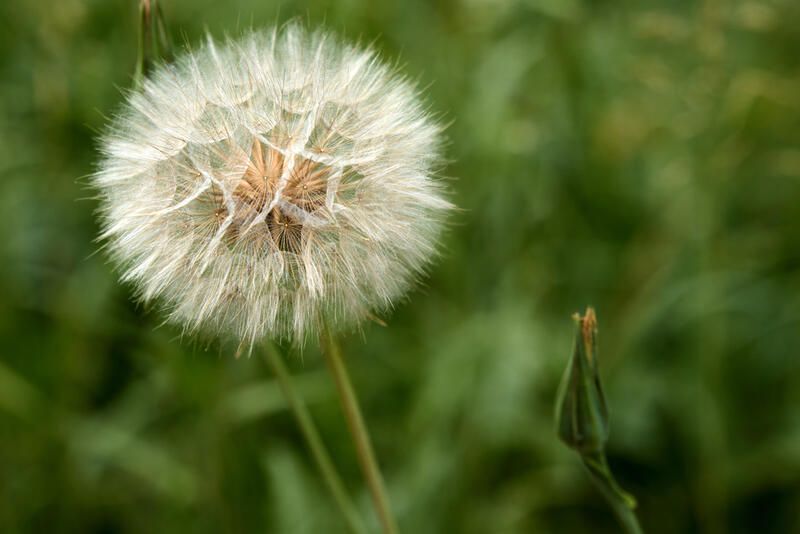
20. The best method of weed control starts with a healthy, thick lawn.
After this long list of ways to smother weeds, we'd like to remind you that the best method of weed control starts with a healthy, thick lawn.
When you have a well-established lawn, weeds are less likely to grow because they're not getting enough sunlight or water.
A healthy lawn is thick and dense and has an extensive root system. A majority of the time, weeds will be choked out by your grass before they take over.
The best way to have a thick, green lawn is to fertilize it regularly and keep your grass clippings from going into the garbage (instead put them back on the ground where they came from).
Also, use herbicides carefully and only when necessary!
If you want a healthy lawn, you'll have to do several things:
-
Use fertilizer or other soil amendments on your lawn at least once a year.
-
Water deeply but infrequently—we're talking about 1/2 inch per week! See how much water your soil needs and try to match that amount when watering.
-
Avoid high temperatures that lead to dryness in the soil.
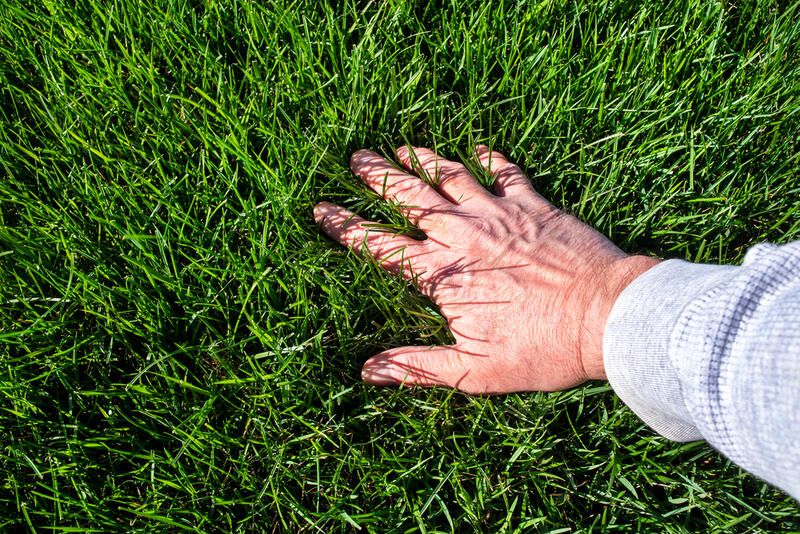
Finally,
We hope this guide has helped you see how easy it is to control weeds in your garden. All of these methods are simple, effective, and eco-friendly.
You don't need harsh chemicals for effective weed control—just a little bit of elbow grease!
And if you're ever in need of the advice of plant experts, don't forget to contact ShrubHub for a free consultation session on all landscaping issues.


